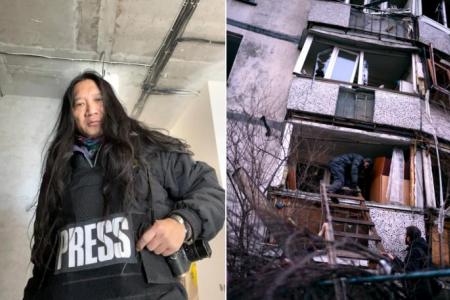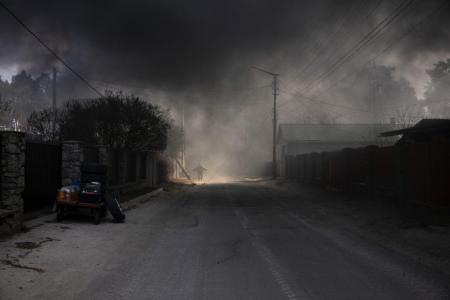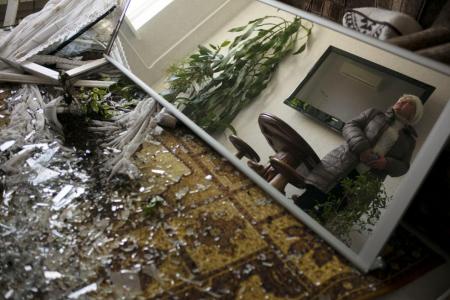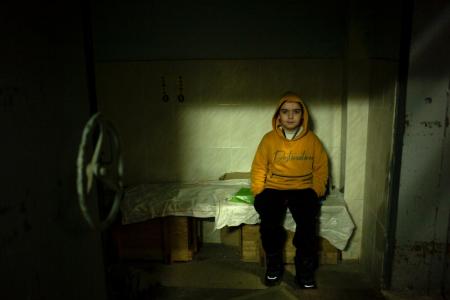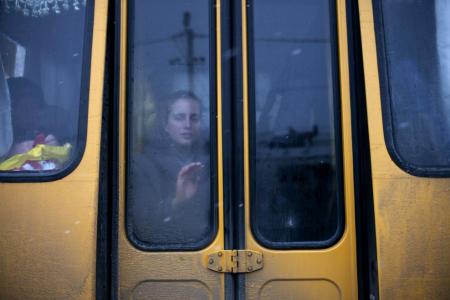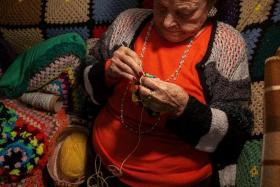Singapore-born photojournalist still in Ukraine
Singapore-born photojournalist Mathias Heng is one of the few journalists left in Kyiv. The 56-year-old Australian, who had travelled from Paris where he is based, tells The Sunday Times that he felt compelled to show the human faces behind the war.
While many fled Ukraine after Russia invaded their country on Feb 24, freelance photojournalist Mathias Heng boarded a bus in Poland that took him across the border to get him closer to the war zone.
On Feb 28, the Singapore-born Australian, 56, crossed the border from Warsaw in Poland to Lviv, Ukraine, then took a train to Kyiv. He arrived in the city on March 1.
Speaking to The Sunday Times last week about life in Kyiv, Mr Heng, who has 37 years of experience covering wars in Iraq, Afghanistan and Papua New Guinea, said he felt compelled to leave the safety of his home in Paris, where he is based, to travel to the Ukrainian capital.
"If there are no photos out there showing people what's happening, then nobody knows what's happening. So I suppose I have to be here, and it's what I do best," he said.
"It's important to show the human faces behind what's happening in hope that the world will stop the war and we can have world peace."
And he added, speaking by phone: "With more voices, I think the message becomes more impactful."
He was nursing a cough, and explained that he was recovering from a cold he caught while taking pictures on the front line north of Kyiv where dusty conditions, sleeping on the floor, if at all, and eating poorly were the norm.
"If you go to the front line, you will witness civilians being targeted and bodies on the road that haven't been claimed. The front-line troops are fighting tirelessly to uphold their country," said Mr Heng.
Although Russian state media claimed that only military infrastructure is being targeted, hospitals, schools, apartments and offices across Ukraine have clearly been reduced to rubble.
This means that there are days when Mr Heng's plans to cover the action are thwarted for safety reasons. He works out logistics including travel around Kyiv with locals and fixers.
"We were supposed to get in right into the front line the other day, but we had to stop because of heavy bombardments. If we went in, it would have been suicidal," said Mr Heng, who recalled getting as close as about 2km to 3km from the shelling and firing
"The shelling was really loud. But then again, when you're in a car, you don't know where the bomb's going to land so that was my fear," he said.
Mr Heng is aware that at least five journalists have been killed by shells or shot while covering the conflict. One of them, American film-maker and journalist Brent Renaud, was reportedly shot in the neck while trying to film Ukrainian refugees.
"I am staying safe, but nothing is safe at the moment," said Mr Heng.
Covering this war is also more challenging compared with other conflicts as people are suspicious of photographers, fearing that they could be Russian spies, said Mr Heng.
"It's because of the time and technology... I have my press accreditation, but they still don't allow me to take certain things so I've got to be very, very careful about it because everybody's watching," he added.
Mr Heng was speaking to ST from an unfurnished apartment he found through a contact after spending the early days of his month in Kyiv in an underground bunker where many Ukrainians have sought shelter.
"I know many children are still traumatised by the bombing and are too afraid to even come out from the shelter," he said.
"You don't see many people on the roads. There are many guard posts and blocks on all the roads (made from) bricks... concrete, sandbags, spikes... so if the Russians come, this will slow them down," he added.
Mr Heng told ST that shops are mostly closed and he lives on bread and snacks, or depends on the goodwill of the Ukrainians.
"People offer to cook for you and give you food... They've become very united and supportive of one another. There's no class level anymore; there's no rich or poor, everybody's the same now in Ukraine," he said.
Reuters reported last Friday that a Ukrainian counter-offensive pushed Russians far back in the east and that Russian troops have failed to capture any major Ukrainian city, a month into their assault.
"The Ukrainians are holding their forces (and) fighting for the love and freedom of their country," said Mr Heng, but he observed that under the patriotic exterior of the soldiers lies a sadness.
He noted that most men aged 18 to 60 are banned from leaving the country. "You find a lot of mothers, sons and daughters on the train leaving their fathers and their husbands behind.
"For the men, you can see that they're here to fight for their country but, at the same time, you can see the sadness in their eyes from missing their family.
"And many of them don't even know if they will come back alive… It's very heartbreaking," he said.
When asked how long he plans to stay in Ukraine, Mr Heng said: "I really don't know. Until I feel that the work I've done is enough. At this point in time, I've still got more work to do."
Get The New Paper on your phone with the free TNP app. Download from the Apple App Store or Google Play Store now

